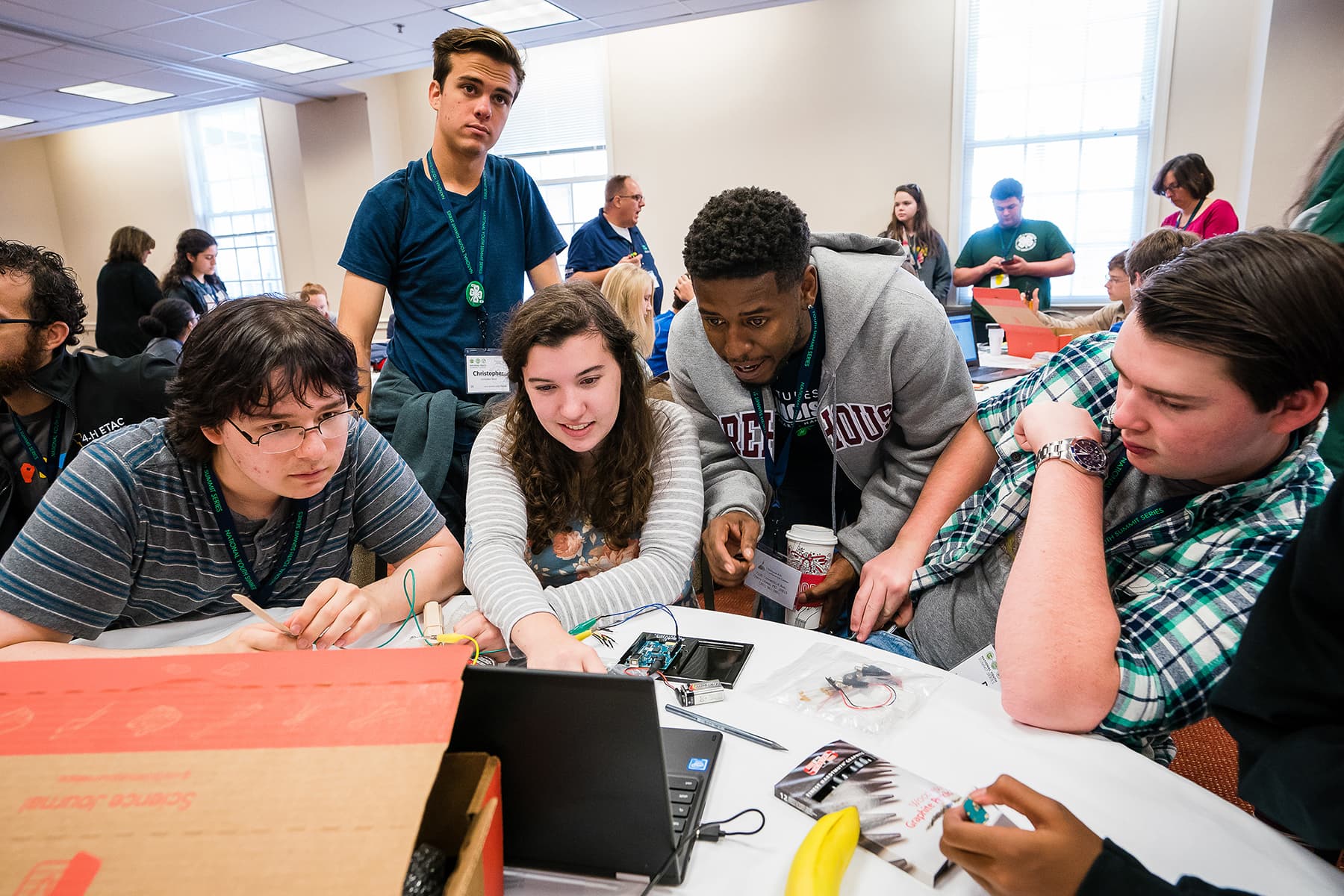Content
Science, technology, engineering, and applied mathematics form the STEM program priority. Nebraska 4-H works to develop interests, skills, and abilities in the areas of science literacy, energy, agriculture, environmental stewardship, and technology, of youth across the state. Through STEM programs, youth develop positive interests and attitudes about STEM and related careers, gain a base knowledge of STEM content and their projects, develop STEM skills and abilities, apply STEM to their 4-H projects, utilize STEM skills and abilities to solve everyday situations, teach others about STEM related to their projects, process information, analyze complex problems and make informed decisions regarding current science, energy, agricultural, and technology related issues, and seek out higher education opportunities and careers related to STEM.
Through these programs, youth practice critical life skills, including:
- Decision-making
- Problem solving
- Critical thinking
- Wise use of resources
- Teamwork
- Communications
Signature/Statewide Programs:
- Virtual Field Trips (High School)
Nebraska STEM careers come alive in recorded field trips to locations around the state exploring the skills and educational requirements needed to enter science, agricultural or technology fields.
- Discover Engineering Days (Middle School)
The event is hosted by the college's outreach organization and is filled with hands-on activities that apply engineering habits of mind such as collaborative, problem solving, creative, and critical thinking skills.
- STEM Field Days (Elementary)
This hands-on learning experience inspires young people to pursue studies and careers in the disciplines of science, technology, engineering, and mathematics while sharing the importance of science and its application within Nebraska communities.
- Robotics (All Ages)
Robotics inspire youth to experiment and grow their critical thinking, coding, and design skills through hands-on STEM learning and robotics while providing resources for FIRST Lego League teams as well as additional robot activities for afterschool, camps, and school enrichment.
